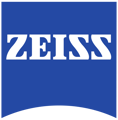Summary of changes in arivis Pro 4.3, released 11 March 2025
Advanced Image Analysis Made Even Easier with ZEISS arivis Pro 4.3
 ZEISS arivis Pro 4.3 brings significant enhancements to image analysis capabilities. Here's a summary of the key new features.
ZEISS arivis Pro 4.3 brings significant enhancements to image analysis capabilities. Here's a summary of the key new features.
Core Enhancements:
- AI-assisted Spine Tracing: Advanced neuronal structure analysis through automated spine detection using pretrained AI models as well as classical approaches
- Enhanced Cell Measurements for HCA: Expanded measurement capabilities enabling richer feature sets for Cell Painting and other High-Content Analysis (HCA) applications
- Native CZI Support: Ensures format consistency across ZEISS imaging and analysis platforms while streamlining workflows through direct file processing, with no intermediate conversion steps needed
To learn more, watch these videos:
AI-assisted spine tracing for advanced neuronal structure analysis
Streamlined workflows across ZEISS platforms with ZEISS arivis Pro 4.3
Powered-up high-content analysis with enhanced cellular measurements
Additional Improvements
- Support New File Formats: Expands arivis Pro's ability to read multiple microscopy file formats, supporting facilities that use different imaging platforms.
- Performance Optimization: for Deep Learning
- Faster deep learning processing for instance segmentation
- Improved shared memory utilization
- Extended instance segmentation support for virtual machines and ZEISS arivis Hub
- Preview for Local Deep Learning Trainer: Enables users to evaluate the segmentation quality of a trained model plane-wise, providing immediate feedback on its performance without requiring the execution of a full 3D analysis pipeline
- Visualization Improvements: Enhanced surface rendering in 4D Viewer creates more natural-looking 3D visualizations, especially benefiting instance segmentation results by eliminating the "stacked" appearance of segmented objects

To learn more about overcoming visualization challenges, read our white paper.
